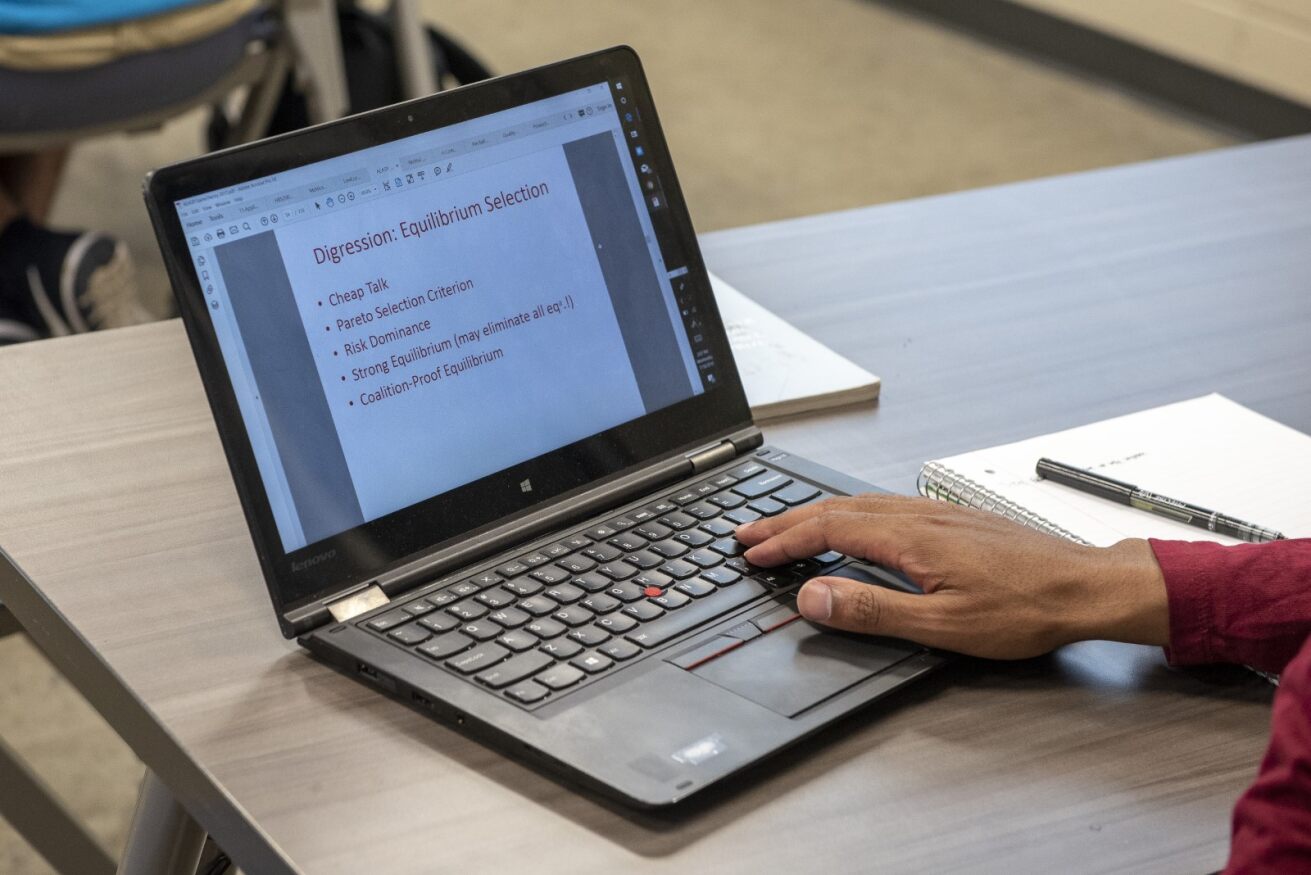Byron Brown was a faculty member in the Department from 1964 until his retirement in 2015. Brown received his A.B. in economics from Cornell University in 1960 and his Ph.D. in economics from the Johns Hopkins University in 1966. He joined the Department initially as an Instructor, and then was promoted to Assistant Professor after completing his graduate work.
Brown’s research focused on the economics of education with particular emphasis on the evaluation of the effects of learning technologies on student achievement. His paper “The Production and Distribution of Cognitive Skills within Schools,” written with then-colleague Dan Saks and published in the Journal of Political Economy in 1975, was particularly influential. Later in his career he conducted, along with colleague Carl Liedholm, an influential study comparing the experiences of students in principles courses delivered through three modes: traditional face-to-face, hybrid, and on-line. The resulting report, “Can Web Courses Replace the Classroom in Principles of Microeconomics?” is similarly important.
Not surprisingly, given his interest in the economics of education, Byron was known as an innovative teacher, applying a variety of new techniques in his introductory microeconomic classes. Brown regularly taught the Honors microeconomics class EC 251H and served as the Department’s Honors College adviser. Later, as computer technology became common, he developed (or co-developed) three different online courses in economics used at MSU and some high schools.
Brown held a number of administrative positions in the University, including assistant to the MSU president in 1969-70 when colleague Walter Adams was President, Chair of the Department from 1977 to 1980, and beginning in 2000 a joint appointment as Coordinator of Instructional Technology Support in the Office of Libraries, Computing, and Technology (IT Services). In the latter role, Brown advocated and coordinated the introduction of instructional technology in MSU classrooms and advised the University and faculty on how to make online classes more effective and secure.
Brown received the 1999 Richard J. Lewis Quality of Excellence Award from the Broad College of Business for his work in online learning, and the Honors College award for Distinguished Contributions to Honors College Students in 2004.

